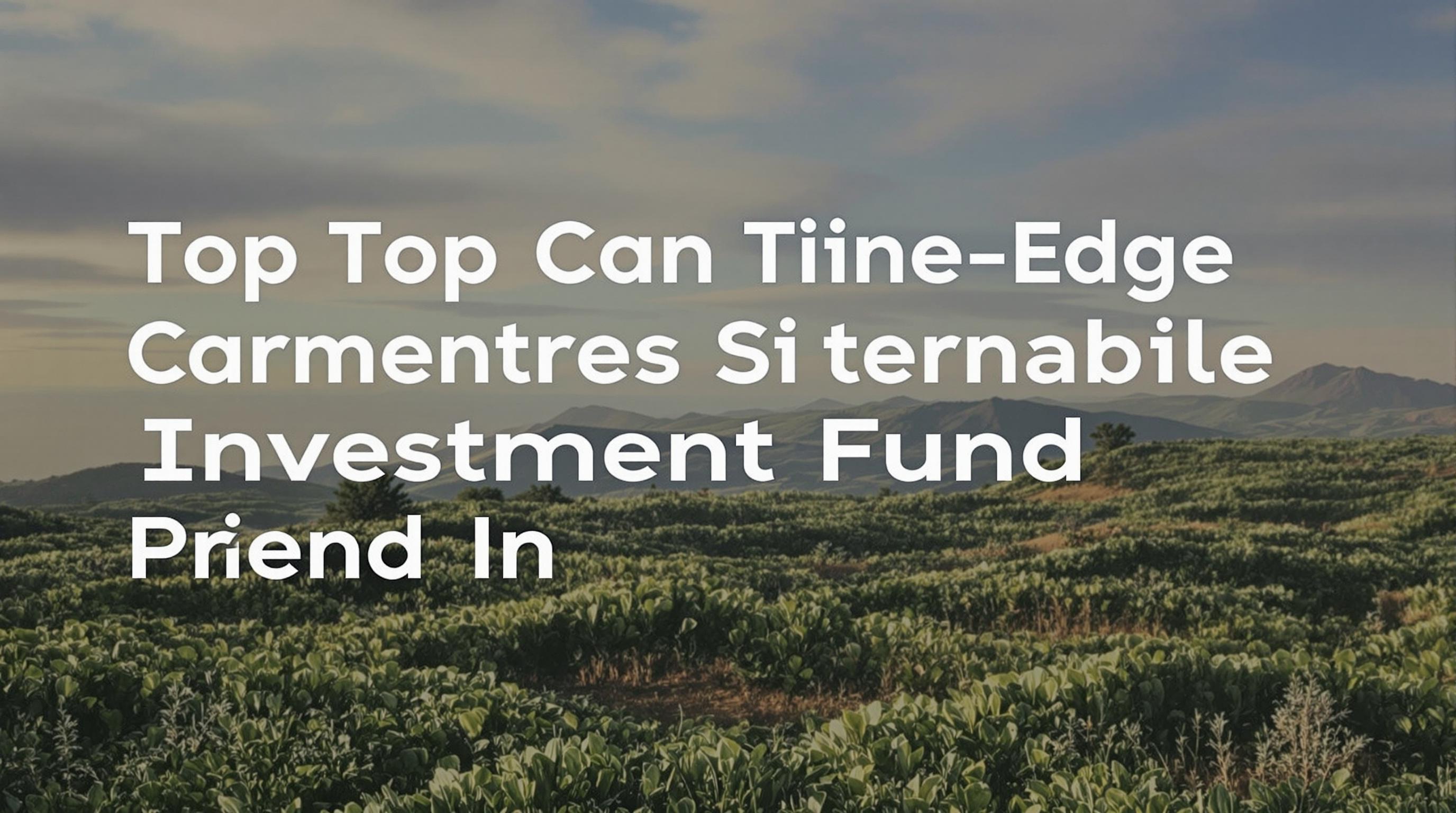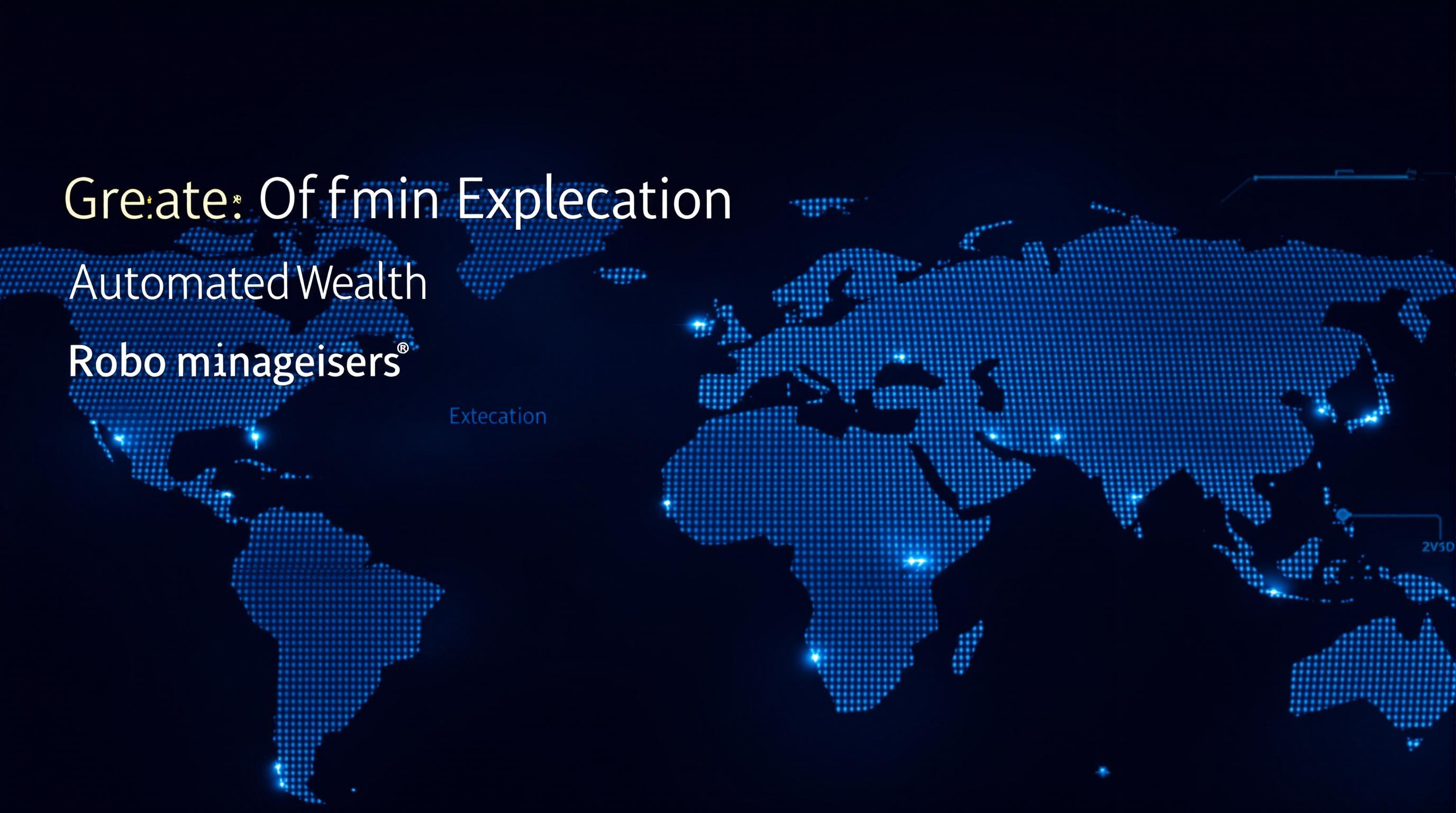Related Articles
- How Climate Change Litigation Is Reshaping International Investment Risk Assessment and Capital Flows
- 7 Revolutionary Smart Home Investments from the Last Five Years That Generate Steady Passive Income in 2024
- How Virtual Reality Is Changing Family Conversations About Inheritance and Future Financial Transparency
- The Influence of Seasonal Affective Disorder on Designing Adaptive Support Networks for Mental Wellness
- Top 5 Game-Changing Green Bonds Released Since 2019 Disrupting Conventional Sustainable Finance Models
- 6 Groundbreaking Global Robo-Advisors Unveiled Since 2019 Transforming Automated Wealth Management
Top 7 Cutting-Edge Sustainable Investment Funds Launched Since 2019: Comprehensive Reviews and Rankings
Top 7 Cutting-Edge Sustainable Investment Funds Launched Since 2019: Comprehensive Reviews and Rankings
Top 7 Cutting-Edge Sustainable Investment Funds Launched Since 2019: Comprehensive Reviews and Rankings
The surge in global awareness about climate change, social equity, and corporate governance has spurred significant growth in sustainable investing. Since 2019, a wave of innovative funds has emerged, combining financial return goals with strong environmental, social, and governance (ESG) principles. This article explores the top seven sustainable investment funds launched since 2019, offering comprehensive reviews and rankings to guide investors seeking responsible yet profitable opportunities.
The selection criteria for these funds include their ESG impact, financial performance, innovation in sustainable strategies, and transparency. Each section reviews a single fund, highlighting its investment focus, management philosophy, track record, and unique selling points. As sustainable investing evolves rapidly, these funds demonstrate how cutting-edge financial products align profitability with purpose.
Investors today demand more than just returns; they want their capital to contribute to a better world. Sustainable investment funds are designed to meet this demand by channeling resources into companies and projects that prioritize renewable energy, social justice, circular economies, or sustainable agriculture. The following analysis provides insights into seven funds that exemplify leadership in this growing market.
1. Calvert Impact Capital's Impact Paulist Equity Fund
Launched in early 2020, the Impact Paulist Equity Fund by Calvert Impact Capital stands out for its focus on social impact across emerging markets. The fund targets enterprises driving measurable social outcomes, especially in affordable housing, financial inclusion, and healthcare.
What differentiates this fund is its rigorous impact measurement and active engagement with portfolio companies. Calvert employs a proprietary impact score system combined with traditional financial analysis to ensure dual objectives are met. This commitment has generated a steady return profile with growing ESG benefits.
According to Calvert's 2023 report, the fund achieved a net annualized return of 7.5% since inception, outperforming many peers in the impact investing space. Its transparent reporting and sector diversification also make it attractive to investors seeking accountability.
2. BlackRock U.S. Carbon Transition Readiness ETF (LCTU)
BlackRock's U.S. Carbon Transition Readiness ETF (LCTU), launched in late 2020, targets companies poised to benefit from the transition to a low-carbon economy. The fund uses proprietary ESG data analytics to select firms with low carbon exposure and robust net-zero transition plans.
LCTU emphasizes dynamic portfolio adjustments based on evolving climate policies and technological innovation. It excludes companies with significant fossil fuel reserves and invests heavily in renewables, energy efficiency, and green technologies.
As of 2023, LCTU has delivered competitive market returns with reduced carbon intensity compared to the S&P 500 benchmark, solidifying its reputation as both eco-conscious and financially sound. Its approach exemplifies how ETFs can integrate sustainability without sacrificing liquidity or performance.
3. Parnassus Endeavor Fund
Founded in 2019, the Parnassus Endeavor Fund focuses on U.S. large-cap companies demonstrating exemplary ESG practices and product sustainability. The fund integrates qualitative assessments with quantitative ESG metrics to identify firms leading innovation in social and environmental responsibility.
Parnassus employs a bottom-up research methodology, prioritizing shareholder engagement. This proactive stance ensures portfolio companies enhance transparency and sustainability over time, which supports long-term value creation.
The Endeavor Fund has been recognized for outperforming its category averages, with a 10% annualized return since launch, while maintaining an ESG rating consistently above industry benchmarks. Its blend of financial discipline and ethical stewardship appeals to investors committed to sustainable growth.
4. iShares ESG USD Corporate Bond ETF (SUSC)
Introduced in 2021, the iShares ESG USD Corporate Bond ETF (SUSC) provides fixed income exposure filtered by ESG criteria. It invests in U.S. dollar-denominated investment-grade corporate bonds with positive ESG scores, thereby supporting sustainability at the debt level.
SUSC’s strategy offers a compelling option for conservative investors desiring ESG integration without equity market volatility. The fund excludes bonds from companies involved in controversial practices such as arms manufacturing or fossil fuel extraction.
Performance-wise, SUSC has matched its corporate bond peers in yield while reducing portfolio ESG risk. Industry analysts highlight its robust screening process and broad diversification as critical strengths in sustainable bond investing.
5. TIAA-CREF Social Choice Equity Fund
The TIAA-CREF Social Choice Equity Fund, relaunched with a new mandate in 2019, targets large, financially sound companies that exhibit strong ESG characteristics. The fund incorporates negative screening and positive selection to assemble a diversified equity portfolio.
This fund distinguishes itself through active fund management and continuous ESG engagement with holdings. Its team leverages advanced analytics and proprietary scoring to monitor compliance and impact regularly.
Since the adjustment in strategy, the fund has experienced steady capital appreciation, returning around 9% annually, while aligning with the United Nations Sustainable Development Goals. Investor confidence stems from TIAA-CREF’s reputation and the fund’s balanced ESG-financial approach.
6. BNP Paribas Climate Impact Fund
Launched mid-2019, BNP Paribas Climate Impact Fund specializes in financing sustainable infrastructure projects, renewable energy, and clean technology firms globally. The fund adopts a thematic investing approach emphasizing climate change mitigation and adaptation.
With hands-on managerial involvement, the fund targets companies with innovative technologies or business models contributing to carbon neutrality. Its portfolio balances early-stage ventures and established market leaders to optimize risk-adjusted returns.
BNP Paribas reports a net internal rate of return exceeding 8% since inception, backed by robust pipeline growth and expanded geographic footprint. Analysts commend its focus on real assets and measurable environmental outcomes.
7. Morgan Stanley Global Sustain Equity Fund
Introduced at the end of 2019, the Morgan Stanley Global Sustain Equity Fund invests across developed and emerging markets with integrated ESG criteria. Its multi-sector approach features significant allocation to technology, healthcare, and green energy sectors.
The fund benefits from Morgan Stanley’s proprietary ESG research and risk modeling frameworks, enabling identification of sustainable growth opportunities worldwide. Active portfolio management allows adaptation to shifting regulatory and market conditions.
Financially, the fund has delivered an average annual return of approximately 11%, outperforming many sustainable global equity peers. Its comprehensive ESG integration and global perspective make it a top choice for diversified responsible investors.
Methodology Behind Fund Selection and Ranking
The seven highlighted funds were selected based on inception date (post-2019), ESG innovation, impact transparency, and financial performance. Data sources include fund prospectuses, 2023 impact reports, and third-party performance audits such as Morningstar and MSCI ESG ratings.
Ranking factors considered qualitative aspects such as engagement practices and sustainability-themed strategies alongside quantitative returns and risk metrics. This blended approach ensures a holistic evaluation aligning with evolving investor priorities.
The inclusion criteria excluded funds with inconsistent ESG reporting or limited track records, focusing instead on those demonstrating measurable impact and competitive financial results. This methodology aims to guide both novice and experienced investors toward cutting-edge sustainable investment opportunities.
Future Trends in Sustainable Investment Funds
Looking ahead, sustainable investment funds are expected to deepen their integration of climate risk analytics, social justice themes, and circular economy principles. Advances in AI and big data are enabling more precise measurement of ESG impact and alignment with global sustainability frameworks.
Additionally, increased regulatory focus on ESG disclosures and taxonomy will drive greater transparency and comparability among funds. Investors can anticipate broader availability of thematic funds targeting biodiversity, water stewardship, and equitable economic development.
The momentum toward intentional capital allocation promises to reshape global financial markets. Funds launched after 2019 exemplify how innovation is meeting demand for measurable sustainability combined with financial rigor, setting new standards for the investment community.
Conclusion
The top seven cutting-edge sustainable investment funds launched since 2019 illustrate diverse strategies and sectors within responsible investing. From equities to bonds to thematic infrastructure, these funds balance measurable ESG impact with competitive returns.
As the sustainable investment landscape evolves, these leaders provide valuable models for integrating purpose and profit. Investors seeking to align portfolios with planetary and social goals will find these funds pioneering and promising.
Continued innovation, rigorous impact measurement, and transparent reporting will be essential for sustainable funds to maintain relevance and drive positive change. The future of investment is undeniably sustainable, and these funds are at the forefront of that transformation.
Sources:
- Calvert Impact Capital Annual Report 2023
- BlackRock Sustainable ETF Overview (2023)
- Morningstar Sustainability Ratings (2023)
- BNP Paribas Climate Impact Reports (2023)
- Morgan Stanley Investment Insights, ESG Series (2023)
- MSCI ESG Fund Ratings 2023
- iShares Product Literature (2021)




